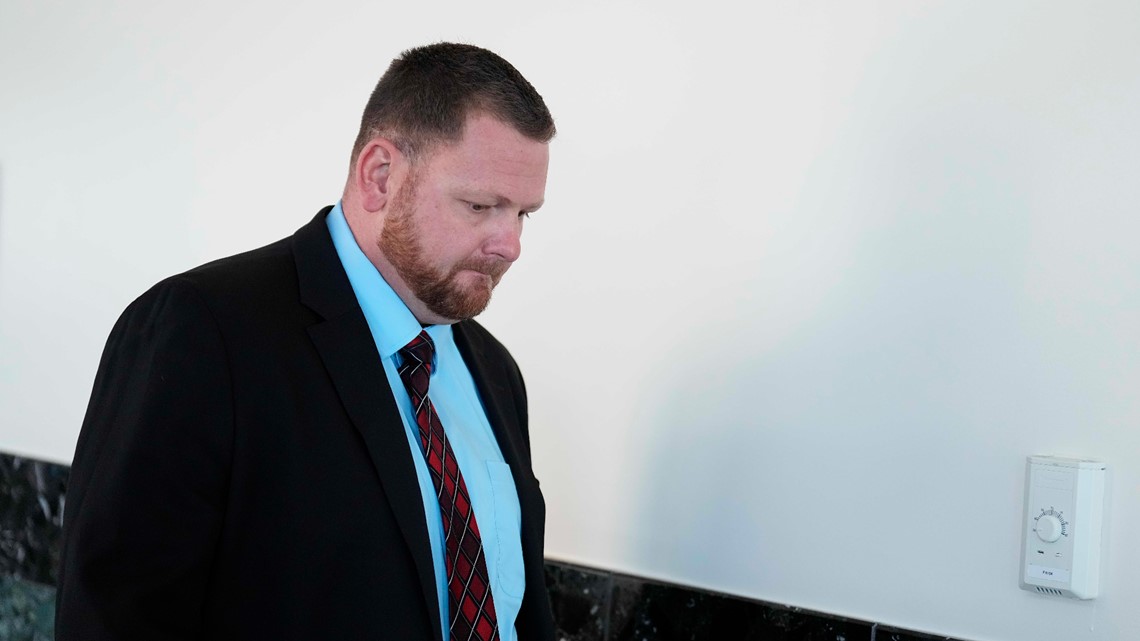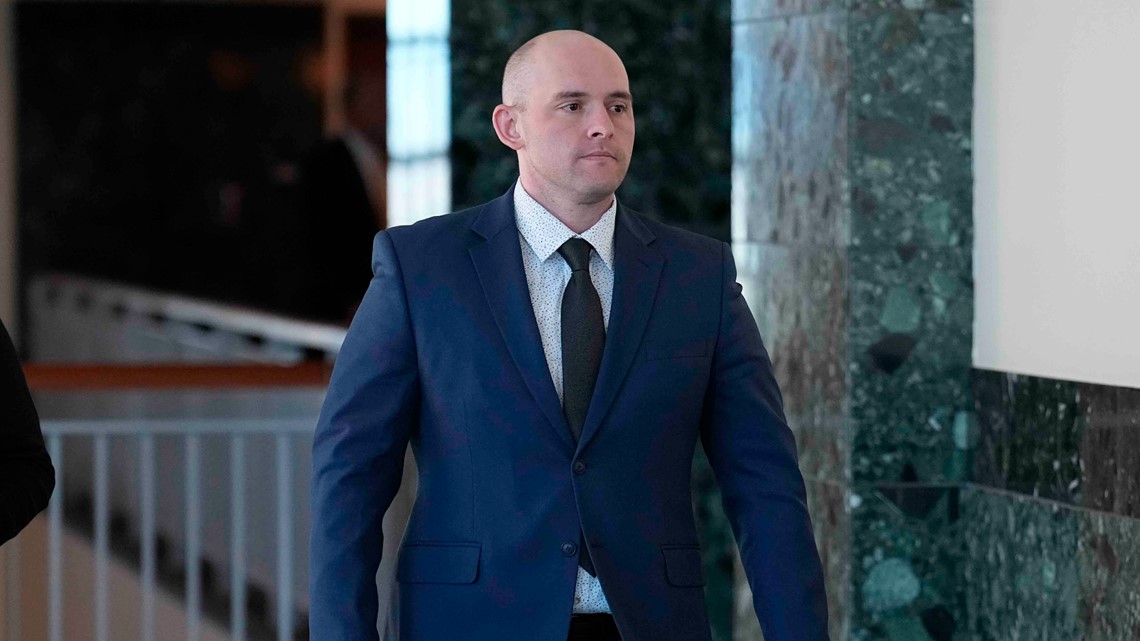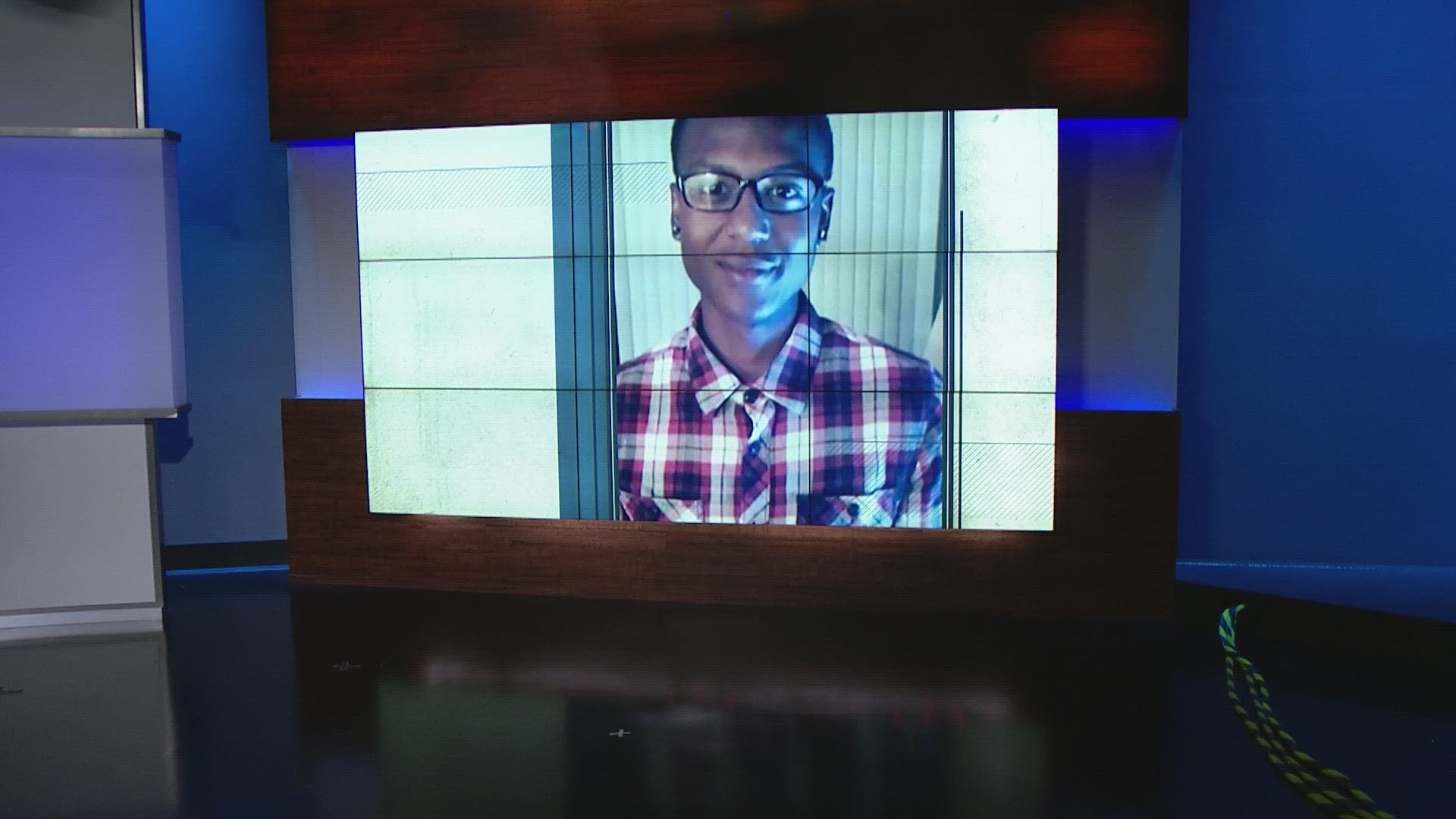AURORA, Colo — Defense attorneys spent the morning Tuesday trying to cast doubt that the direct action of any law enforcement officers caused the deteriorating condition of Elijah McClain prior to paramedics injecting him with ketamine. They instead suggested that McClain's own actions of "choosing to resist" were to blame.
"Did you rule out for purposes of causation of death that maybe Mr. McClain's own conduct caused him to die?" Reid Elkus, an attorney for Randy Roedema, asked of Dr. David Beuther.
"No," Beuther replied. "That would be inappropriate for a medical doctor to comment on people's intentions and how some event happened. That seems like more of a law enforcement or legal expert would be required for that."
Beuther, a clinical care expert at National Jewish Health, returned to the stand Tuesday after first testifying Friday in the trial of suspended Aurora officer Randy Roedema, 41, and former officer Jason Rosenblatt, 34. He described on Friday how he saw on body worn camera footage that McClain's health declined between the time officers contacted McClain and when he was injected with ketamine.
Roedema and Rosenblatt are among five people indicted in 2021 in connection with McClain's death. Both are charged with reckless manslaughter and second-degree assault.
A third officer and two paramedics were also indicted and will go to trial later this year.


On Aug. 24, 2019, a teenage boy called 911 and relayed that he saw McClain wearing a coat and mask and acting "suspicious." Less than a minute after police arrived, McClain was taken to the ground and engaged in a struggle with Roedema, Rosenblatt and the third officer. During that struggle, McClain was placed in a carotid hold, which can cut off the oxygen supply to the brain.
Later that night, paramedics injected McClain with the sedative ketamine. His heart stopped and he later died.
Beuther said Friday that McClain went from someone speaking in full sentences to someone who could not answer basic questions and described him as “minimally responsive” just prior to being given ketamine.
Beuther said he believed McClain's condition was caused by a combination of factors including aspiration – in this case, inhaling vomit into his lungs, low oxygen levels, and an increase of acid in his blood due to his inability to breathe properly.
"You can't state with a medical degree of certainty that any specific law enforcement actions actually caused any of those three conditions: Medical acidosis, aspiration or hypoxia," said Elkus, who represents Roedema.
"I support that," Beuther responded.


During his cross-examination Tuesday, he questioned Beuther about the fluid in McClain's lungs. Most of it was in his right lung, which, Beuther testified, indicated it likely got there when McClain was standing up or lying down on his back.
If it occurred while lying down, that likely meant McClain was in the ambulance on his back around the time he was given ketamine. If it occurred while standing, it likely happened when McClain was first contacted by officers.
"It's my expert opinion that he aspirated while the mask was on," Beuther said. "We know he aspirated, from what happened at the very end of this event at the hospital, and that could have many causes and occurred at any time, but to have solid particles in the mask says he had a major regurgitation, or vomiting, while the mask was on."
Beuther went on to say that the mask was tight on McClain's face and he was breathing heavily, which put him at high risk for aspiration at that time.


Elkus also questioned Beuther about his written reports that indicated ketamine – which was injected by the paramedics – was the primary cause of McClain's death.
"In my opinion, it [ketamine] was not the only factor in his death," Beuther said. "It was the aspiration into the airway, it was the acidosis, it was also the position he was put in that reduced his ability to cough, clear his airway or breathe in adequately."
He said all of those things would have put McClain at risk for complications if given ketamine. However, Beuther also conceded that paramedics failed to monitor McClain properly and said that if they had "aggressively" intervened, McClain likely would not have died.
Prior to the lunch break on Tuesday, two workers from a Pennsylvania lab testified about the process they used to test a sample of McClain's blood. Tuesday afternoon the jury heard from a 911 dispatcher and call taker. They also heard the 911 call that prompted police to contact McClain.
Listen to the 911 call below.
The jury also heard from the owner of the Shell convenience store where McClain purchased several cans of tea prior to being contacted by officers.
Raminber Aulakh testified that there are 16 cameras at the store located at East Colfax Avenue and Billings Avenue and their biggest concern is shoplifting, not violent crime. She also told jurors someone wearing a mask might not be cause for alarm.
"It depends on the person's demeanor," she said. "Like if someone just barges in with a weapon or a knife I would be. If this person is not causing a commotion or is not threatening, then I would not."
She also testified that it was "absolutely common" for people to come into her store wearing heavier clothing even in the heat of the summer.
The video below shows McClain inside the Shell gas station prior to being contacted by police.
Jeremy Cooper and Peter Cichuniec, the two paramedics who responded to the call, are set for trial in November. They are each charged with reckless manslaughter and numerous counts of assault.
Another officer, Nathan Woodyard, who was the first to respond to the call about McClain, was also indicted on a charge of reckless manslaughter. His trial is set to begin in mid-October.
Testimony is expected to resume at 9 a.m. Wednesday.
SUGGESTED VIDEOS: Elijah McClain death

